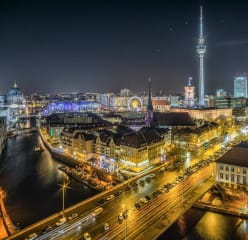Moving to Singapore: A comprehensive guide for expats
Find the answers to all of your questions about the popular city-state in Southeast Asia.

Are you considering moving to Singapore? This vibrant city-state in Southeast Asia offers a lot of opportunities for expatriates seeking a high quality of life and diverse cultural experiences. Whether you’re drawn to Singapore’s bustling urban landscape, its reputation as a global business hub, or its rich multicultural heritage, making the decision to relocate here can be an exciting and rewarding endeavor. However, before you embark on your journey, be sure to check out this expat guide to Singapore. It’s essential to understand life in Singapore and plan accordingly.
Is Singapore a good place to live for expats?
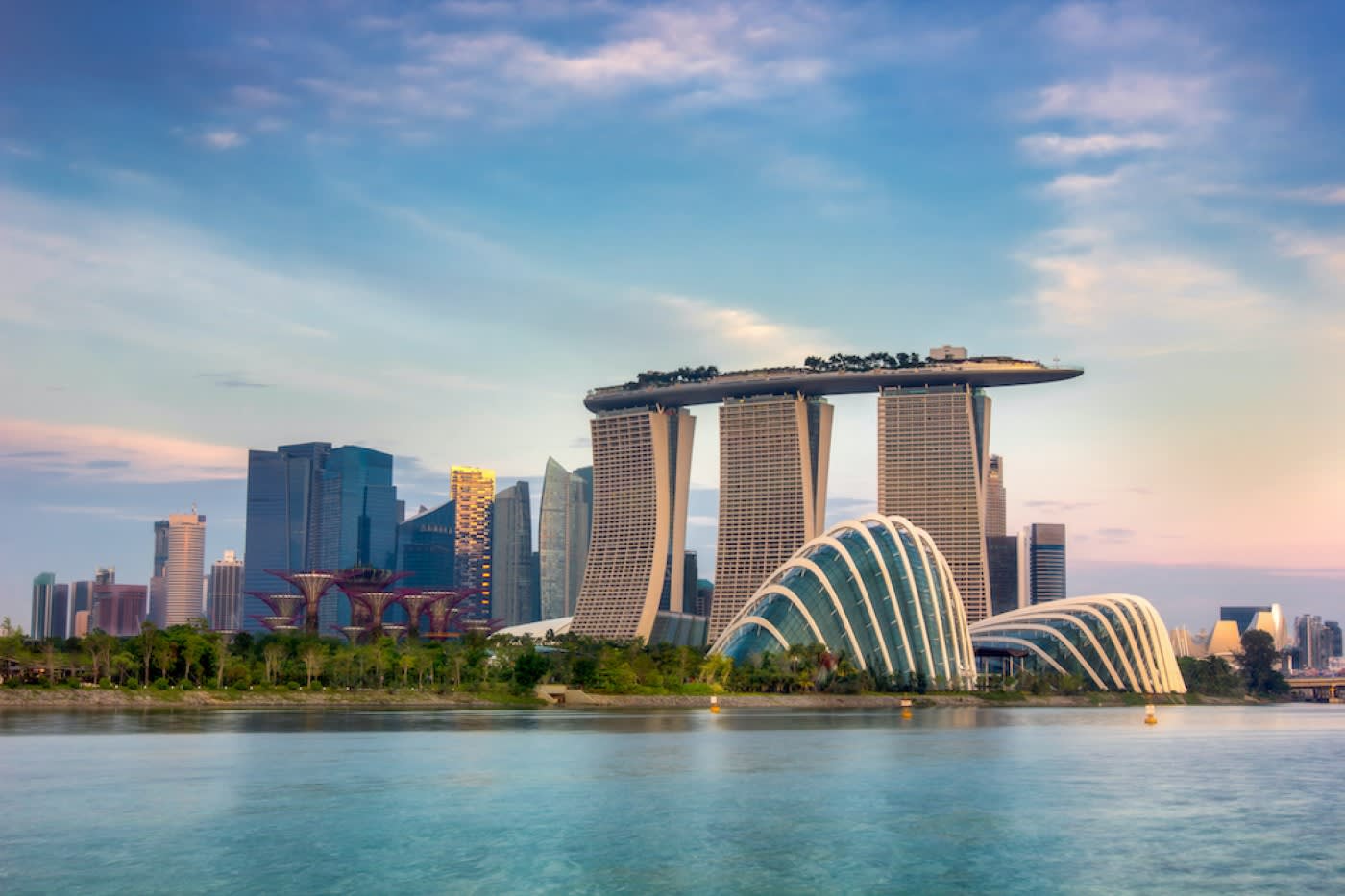
Many expatriates find living in Singapore to be a rewarding experience. With its excellent healthcare, efficient public transportation, and low crime rates, Singapore ranks among the top destinations for expat living. The city’s multicultural environment and vibrant social scene make it an attractive choice for individuals and families alike. Expatriates from all over the world have found Singapore to be a welcoming and accommodating place to call home, with ample opportunities for personal and professional growth.
Local culture in Singapore:
Singapore’s rich cultural tapestry is a hallmark of life here. With its diverse population of Chinese, Malay, Indian, and expatriate communities, the city embraces multiculturalism like few others. Expats have the opportunity to immerse themselves in a melting pot of traditions, languages, and cuisines, making Singapore a truly unique and vibrant place to live.
There are lots of things to do in Singapore! From traditional festivals like Chinese New Year and Deepavali to modern cultural events like the Singapore Arts Festival and Singapore International Film Festival, expats can experience the best of both worlds in this cosmopolitan city-state.
Cost of living in Singapore: Is it expensive?

While Singapore offers a high quality of life, it’s essential to consider the cost of living before moving to Singapore. While some expenses may be higher compared to other cities, such as housing and cars, the overall cost of living can be manageable with careful budgeting. Expats can expect to spend a significant portion of their income on housing, transportation, healthcare, and education, but they can also enjoy a wide range of affordable dining, shopping, and entertainment options in Singapore.
Below is an overview of some typical expenses in Singapore:
- Accommodation:
- Rent for a one-bedroom apartment in the city center: SGD 3,000 – SGD 4,500 per month. Furnished apartments may cost even more
- Rent for a one-bedroom apartment outside the city center: SGD 1,500 – SGD 2,500 per month
- Transportation:
- Monthly public transportation pass: SGD 90 – SGD 120
- Taxi starting fare: SGD 3.20 – SGD 3.90
- Average cost of a liter of gasoline: SGD 2.00 – SGD 2.50
- Food and Dining:
- Meal at an inexpensive restaurant: SGD 3.50 – SGD 10
- Meal at a mid-range restaurant for two: SGD 50 – SGD 100
- Groceries for a week for one person: SGD 50 – SGD 100
- Entertainment and Leisure:
- Movie ticket: SGD 10 – SGD 15
- Fitness club/gym membership: SGD 80 – SGD 300 per month
- Night out at a bar or club (including drinks): SGD 50 – SGD 150
- Utilities:
- Monthly electricity, water, heating, cooling, and garbage for a small apartment: SGD 100 – SGD 200
- High-speed internet (unlimited data): SGD 40 – SGD 80 per month
- Healthcare:
- Basic doctor’s visit (without insurance): SGD 50 – SGD 100
- Prescription medication (average cost): SGD 10 – SGD 50 per prescription
- Education:
- International school tuition fees (per year): SGD 20,000 – SGD 40,000 (varies based on the school and grade level)
- Miscellaneous:
- Clothing and personal care items: SGD 50 – SGD 200 per month
- Mobile phone plan (unlimited data): SGD 20 – SGD 80 per month
Accommodation in Singapore: Where to Live?
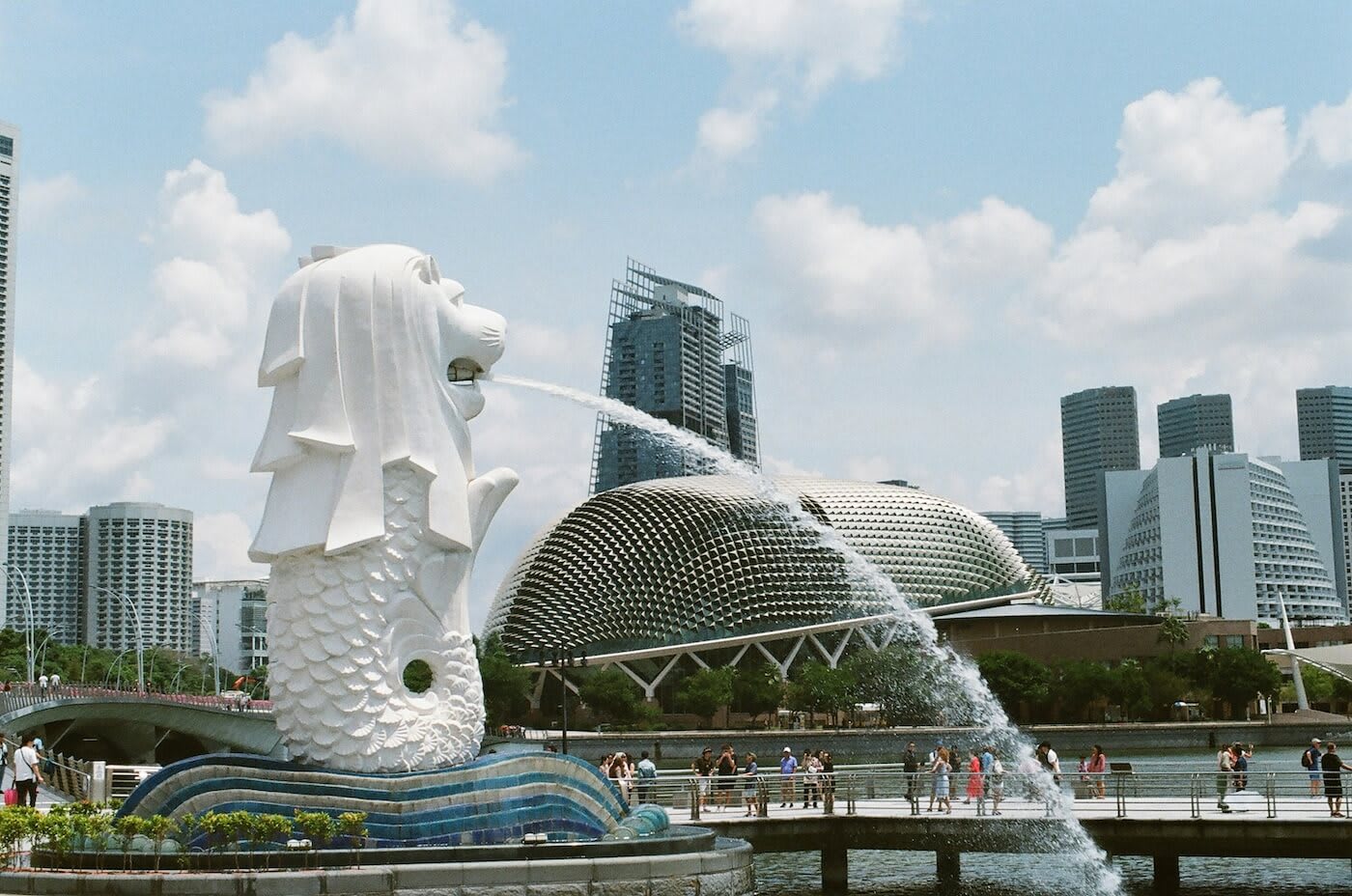
Finding suitable accommodation in Singapore is a priority for expats. Whether you prefer the hustle and bustle of the city center or the tranquility of suburban living, Singapore offers a variety of housing options to suit every lifestyle and budget.
Expats often gravitate towards popular neighborhoods such as Orchard Road, Bukit Timah, and Sentosa, where they can enjoy convenient access to amenities, schools, and recreational facilities. From high-rise condominiums to landed properties, expats have plenty of choices when it comes to finding their ideal home in Singapore.
Here’s a list of some of the best neighborhoods to live in Singapore (where Blueground currently offers apartments), along with what makes each area unique and desirable. Because what would an expat guide to Singapore be without checking out the neighborhoods?
- Bugis:
- Vibrant Lifestyle: Bugis is known for its vibrant lifestyle, with a mix of historical landmarks, shopping malls, and cultural attractions.
- Convenient Transportation: The neighborhood offers excellent connectivity with Bugis MRT interchange station, making it easy to travel around the city.
- Bukit Timah:
- Greenery and Nature: Bukit Timah is renowned for its lush greenery and nature reserves, including Bukit Timah Nature Reserve and Singapore Botanic Gardens.
- Family-Friendly Environment: The area is popular among families due to its peaceful ambiance, reputable schools, and recreational facilities.
- Buona Vista:
- Education Hub: Buona Vista is home to educational institutions such as the National University of Singapore (NUS) and the Singapore Polytechnic, making it ideal for students and academics.
- Technology Hub: The neighborhood houses the one-north business park, fostering innovation and entrepreneurship in technology and research.
- Holland Village:
- Bohemian Atmosphere: Holland Village exudes a bohemian vibe with its eclectic mix of trendy cafes, bars, boutiques, and art galleries.
- Cosmopolitan Community: The neighborhood attracts expatriates and locals alike, creating a diverse and cosmopolitan community.
- Marina Bay:
- Iconic Skyline: Marina Bay boasts a stunning waterfront skyline with iconic landmarks such as Marina Bay Sands, Gardens by the Bay, and the Singapore Flyer. Also, as part of the Central Business District, many financial institutions and global conglomerates have their offices in this area. This makes it a popular choice for professionals working nearby.
- Luxurious Living: The area offers high-end residential developments, luxury shopping malls, and fine dining options for a luxurious lifestyle.
- Marine Parade:
- Seaside Living: Marine Parade offers a coastal lifestyle with its proximity to East Coast Park, where residents can enjoy beach activities, cycling, and seaside dining.
- Family-Friendly Amenities: The neighborhood features family-friendly amenities such as schools, recreational facilities, and shopping malls.
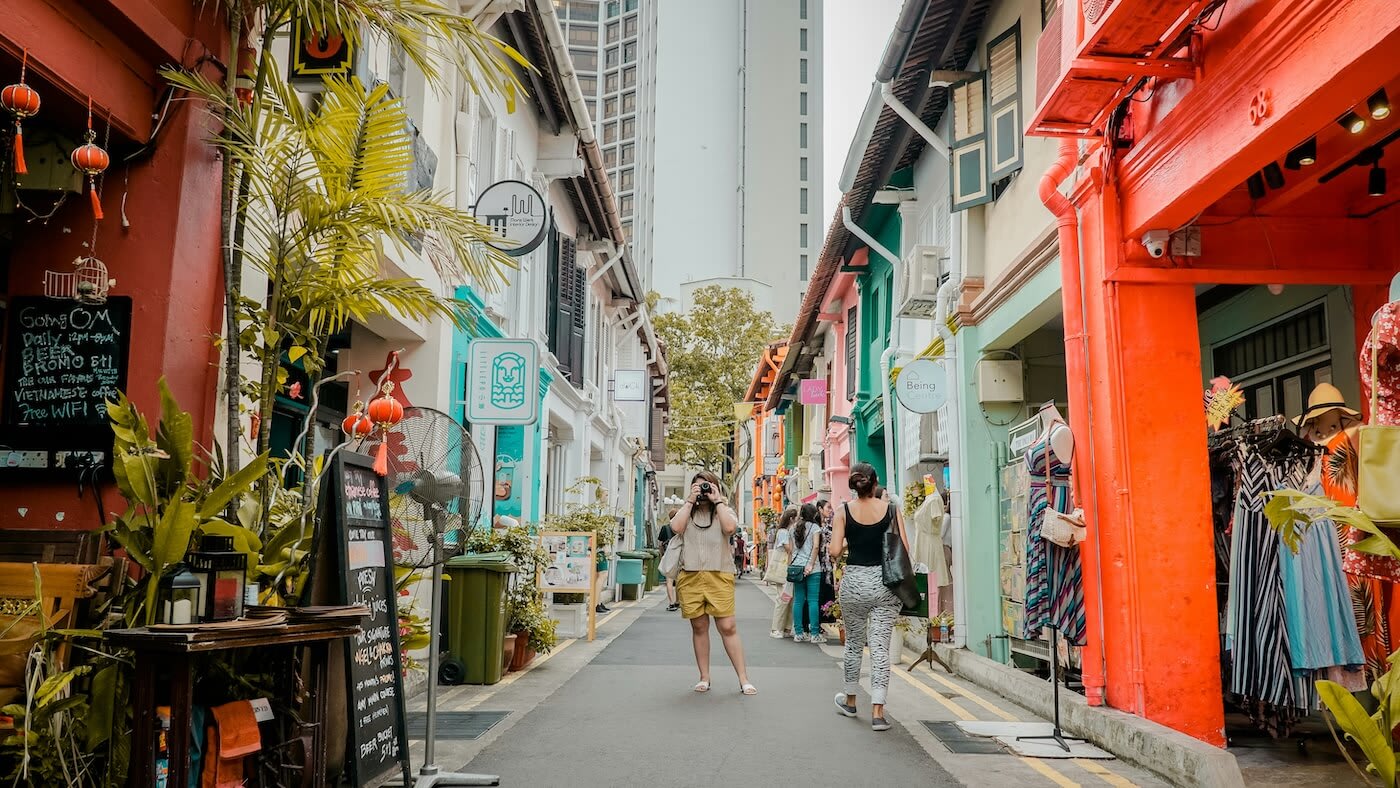
- Newton:
- Central Location: Newton enjoys a central location with easy access to Orchard Road shopping belt, Newton Food Centre, and various amenities.
- Upscale Vibe: Close to excellent dining options and some of the area’s best attractions, Newton boasts a trendy feel, ideal for those who want to shop, eat, or get a drink at night.
- Novena:
- Medical Hub: Novena is known for its medical facilities, including Tan Tock Seng Hospital and Mount Elizabeth Novena Hospital, making it a preferred choice for healthcare professionals and patients.
- Retail and Dining: The neighborhood offers ample retail and dining options at Novena Square and Velocity@Novena Square. That’s part of the reason why it’s one of the best neighborhoods in Singapore.
- Orchard:
- Shopping Paradise: Orchard is Singapore’s premier shopping district, featuring upscale boutiques, department stores, and luxury brands along Orchard Road.
- Entertainment and Dining: The area offers a plethora of entertainment options, including cinemas, restaurants, cafes, and nightlife venues.
- Paya Lebar:
- Commercial Hub: Paya Lebar is emerging as a vibrant commercial hub with office towers, retail malls, and mixed-use developments such as Paya Lebar Quarter.
- Transport Connectivity: The neighborhood benefits from excellent transport connectivity with Paya Lebar MRT interchange station, providing access to multiple MRT lines.
- Queenstown:
- Historical Significance: Queenstown is one of Singapore’s oldest housing estates, known for its rich history, heritage sites, and iconic landmarks like the Queenstown Housing Estate.
- Green Spaces: The neighborhood offers ample green spaces and parks, including Queenstown Park and Alexandra Canal Linear Park, for recreational activities and leisure.
- Redhill:
- Convenience and Connectivity: Redhill is centrally located with easy access to the CBD and Orchard Road shopping district, offering residents convenience and connectivity.
- Residential Amenities: The area features a mix of public housing and private condominiums, along with amenities such as schools, markets, and recreational facilities.
- River Valley:
- Riverside Living: River Valley is situated along the Singapore River, offering residents picturesque waterfront views and a tranquil living environment.
- Dining and Entertainment: The neighborhood is known for its vibrant dining and entertainment scene, with numerous bars, restaurants, and cafes lining the riverfront.
- Tanjong Pagar:
- Historic Charm: Tanjong Pagar is a historic district with well-preserved shophouses, heritage sites, and cultural landmarks, reflecting Singapore’s colonial past.
- Gastronomic Delights: The area is renowned for its diverse culinary scene, with a wide array of restaurants, eateries, and hawker centers serving international cuisines.
Finding accommodation in Singapore:

Deciding on the best housing is a top priority when moving to Singapore. Expats can utilize online resources such as PropertyGuru, 99.co, and iProperty to search for available properties and connect with real estate agents.
Whether you’re looking for a cozy studio apartment in the heart of the city or a spacious landed house in the suburbs, you’ll find plenty of options to choose from in Singapore’s dynamic real estate market. It’s essential to consider factors such as location, budget, amenities, and lease terms when searching for accommodation in Singapore.
When it comes to finding accommodation, this expat guide to Singapore features several options available to suit different preferences and budgets. Whether you’re looking for a traditional HDB flat, a condominium, a landed property, or even a furnished apartment, Singapore offers a wide range of choices to cater to your needs.
1. Traditional Housing (HDB Flats):
- Overview: Housing Development Board (HDB) flats are the most common type of housing in Singapore, offering affordable and well-maintained units across various neighborhoods.
- Pros: HDB flats typically provide essential amenities, such as access to public transportation, schools, markets, and recreational facilities.
- Cons: Some HBD flats have a lack of security and facilities. Older HDBs may also have poorly maintained common areas and facade due to lack of a building management.
2. Landed Properties:
- Overview: Landed properties include terrace houses, semi-detached houses, and bungalows, offering spacious living areas and private outdoor spaces.
- Pros: Landed properties provide ample space and privacy, making them ideal for families or individuals who prefer larger homes.
- Cons: Landed properties are typically more expensive to rent or purchase, and availability may be limited, especially in prime locations.
3. Private Condominiums and Apartments:
- Overview: Private condominiums and apartments offer a higher level of privacy and often come with exclusive facilities such as swimming pools, gyms, and security services.
- Pros: These properties provide a luxurious living experience with modern amenities and conveniences.
- Cons: Rental or purchase prices for private condominiums and apartments tend to be higher compared to HDB flats.
Furnished Apartments:
- Overview: Furnished apartments are fully equipped with furniture, appliances, and amenities, making them a convenient option for expatriates and individuals relocating to Singapore.
- Pros: Furnished apartments offer hassle-free moving experiences, as tenants don’t need to worry about purchasing or transporting furniture.
- Cons: Rental prices for furnished apartments will be slightly higher compared to unfurnished units, and there may be limitations on customization.
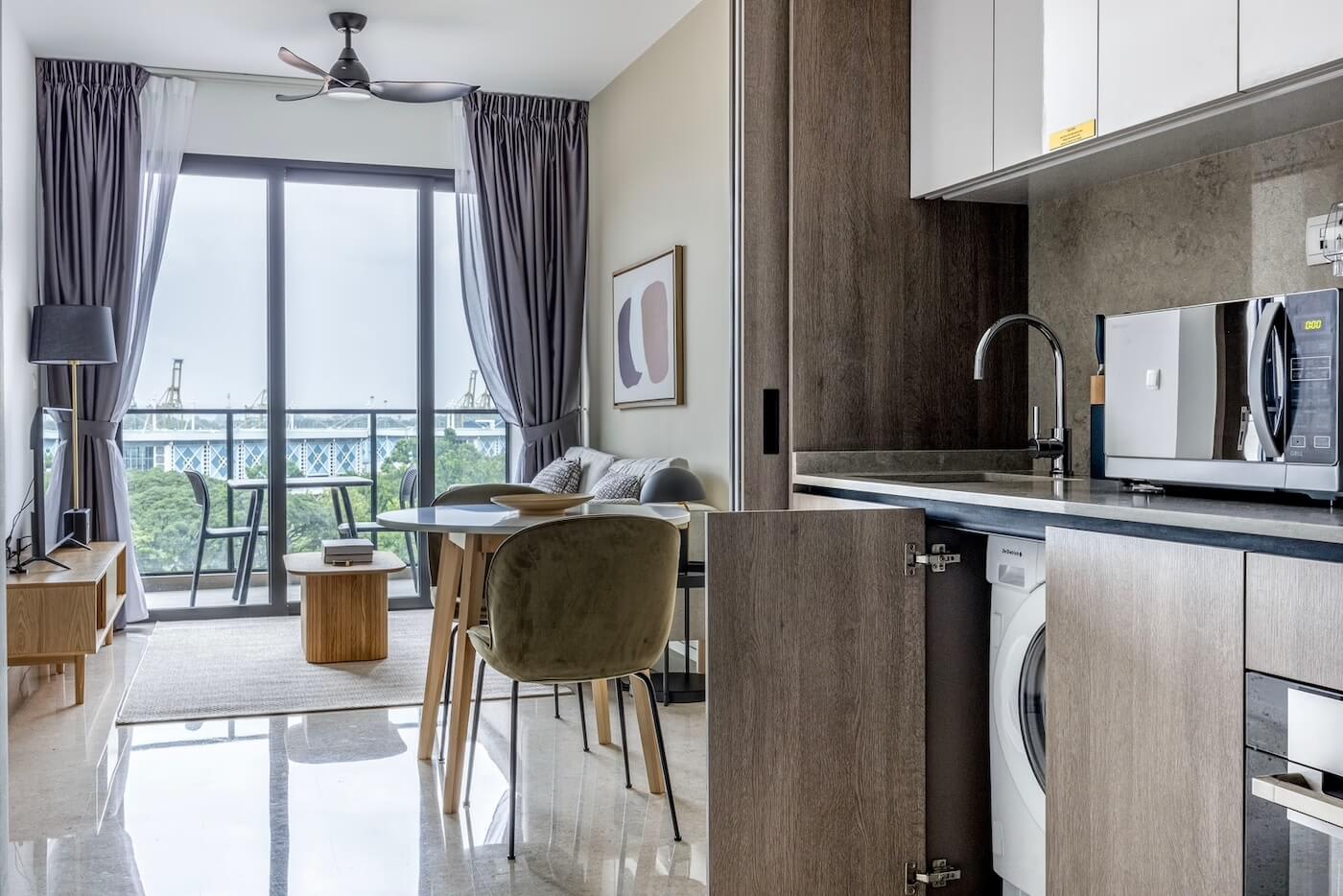
Our company, Blueground offers a premium selection of furnished apartments in Singapore, designed to provide a seamless and comfortable living experience for travelers, expatriates, and professionals relocating to the Lion City. Each Blueground apartment is meticulously curated and tastefully furnished with high-quality furniture, modern appliances, and essential amenities to meet the needs of discerning residents.
Whether you’re staying for a short-term assignment or seeking a long-term accommodation solution, they offer the perfect blend of style, functionality, and convenience. With prime locations in Singapore’s most sought-after neighborhoods, residents can enjoy easy access to business districts, shopping hubs, dining establishments, and cultural attractions. Blueground’s commitment to exceptional service ensures that residents can focus on work, leisure, and exploration, while their dedicated team takes care of the details to ensure a memorable and hassle-free stay in Singapore.
Education in Singapore

For expat families, navigating the education system in Singapore is essential. While local schools offer high-quality education in English, many expatriates opt for international schools to provide their children with a familiar curriculum and a supportive expat community. With a wide range of international schools catering to different nationalities and educational philosophies, expat parents can rest assured that their children will receive a world-class education in Singapore.
Here’s a non-exhaustive list of international schools in Singapore:
- United World College of South East Asia (UWCSEA)
- Singapore American School
- Tanglin Trust School
- Australian International School
- International Community School
- Canadian International School
- GEMS World Academy (Singapore)
- Dulwich College (Singapore):
- Stamford American International School
- Chatsworth International School
- The Japanese School Singapore
- German European School Singapore
- International French School
- Overseas Family School
- Middleton International School
- Singapore International School
- Hwa Chong International School
- Nexus International School (Singapore)
Here is a non-exhaustive list of colleges, universities, and polytechnics in Singapore:
- National University of Singapore
- Nanyang Technological University
- Singapore Management University
- Singapore University of Technology and Design
- Singapore Institute of Technology
- Singapore University of Social Sciences
- James Cook University (Singapore)
- PSB Academy
- Management Development Institute of Singapore
- LASALLE College of the Arts
- Ngee Ann Polytechnic
- Temasek Polytechnic
- Republic Polytechnic
- Singapore Polytechnic
- ITE College Central
- ITE College East
- ITE College West
- Singapore University of Technology and Design
- INSEAD
Job market in Singapore

Singapore’s robust job market offers opportunities for expatriates across various industries. With its thriving economy, strategic location, and business-friendly environment, Singapore is home to numerous multinational corporations, startups, and government agencies, creating a wealth of employment opportunities for skilled professionals from around the world.
Expats can explore career prospects in sectors such as finance, technology, healthcare, hospitality, education, and more, depending on their qualifications, experience, and interests. Whether you’re seeking a senior management position at a multinational company or launching your own startup in Singapore, you’ll find no shortage of exciting career opportunities to pursue in this dynamic city-state.
Job sites in Singapore
Several popular job sites cater to both local and expatriate job seekers. These platforms provide a wide range of job opportunities across various industries and sectors. In addition to global sites like Linkedin, Indeed, and Glassdoor, job-seekers turn to the following popular job sites in Singapore:
- JobStreet Singapore: JobStreet is one of the largest online job portals in Southeast Asia, connecting employers with job seekers. It features a wide range of job listings across different industries, including IT, finance, healthcare, sales, and more.
- JobsCentral: JobsCentral is another prominent job portal in Singapore, offering a comprehensive database of job vacancies and career resources. Job seekers can search for jobs by industry, location, salary range, and job type.
- FastJobs: FastJobs is a mobile-first job portal popular among job seekers looking for part-time, temporary, and contract roles. It focuses on providing quick and easy job search and application experiences.
- STJobs: STJobs is an online job portal affiliated with Singapore Press Holdings, offering job listings from various industries and sectors. It also provides career advice, industry insights, and company profiles.
- eFinancialCareers: eFinancialCareers specializes in job listings for the finance and banking sector in Singapore. It features opportunities for professionals in areas such as banking, finance, investment, accounting, and financial technology.
- Tech in Asia Jobs: Tech in Asia Jobs is a job portal focused on the technology and startup sectors in Asia, including Singapore. It features job listings for roles in software development, product management, marketing, and more.
- MyCareersFuture: MyCareersFuture is an official government job portal in Singapore, operated by Workforce Singapore (WSG). It provides job seekers with access to job listings, career guidance, and skills upgrading opportunities.
Expatriate salary expectations in Singapore

When considering moving to Singapore, understanding the cost of living and expatriate salaries is crucial. Expats can expect competitive compensation packages, particularly in industries such as finance, technology, and healthcare. With its strong economy and high standard of living, Singapore offers lucrative employment opportunities for skilled professionals from diverse backgrounds. However, it’s essential to factor in housing costs, taxes, and other expenses to ensure that your salary aligns with your financial expectations.
Taxation in Singapore
Understanding the tax system is essential for expatriates living in Singapore. Singapore’s tax regime is known for its simplicity, transparency, and competitive rates, making it an attractive destination for expatriates seeking to maximize their earning potential and minimize their tax liability. Expatriates are subject to personal income tax on their employment income earned in Singapore, which is calculated based on a progressive tax rate ranging from 15% to 24%.
In addition to personal income tax, expatriates may also be liable for other taxes such as goods and services tax (GST), property tax, and stamp duty, depending on their individual circumstances and financial activities in Singapore. It’s essential to consult with a qualified tax advisor or accountant to understand your tax obligations and take advantage of available tax incentives and reliefs for expatriates.
Visa requirements & moving costs

Before moving to Singapore, expatriates must familiarize themselves with the visa requirements and costs associated with relocation. Depending on their circumstances, expats may need to obtain employment passes, dependent passes, or long-term visit passes to legally reside and work in Singapore. The specific visa requirements vary depending on factors such as nationality, employment status, and duration of stay in Singapore.
Expatriates are advised to check the official website of the Immigration & Checkpoints Authority (ICA) of Singapore for up-to-date information on visa requirements and application procedures. In addition to visa requirements, expatriates should also consider other moving costs such as airfare, shipping, accommodation, utilities, insurance, and transportation. By budgeting and planning ahead, expatriates can ensure a smooth and hassle-free transition to life in Singapore.
Here are the main types of employment passes in Singapore and their associated costs:
- Employment Pass (EP):
-
-
- Application Fee: SGD 105 (non-refundable)
- Visa Issuance Fee: SGD 225 (per pass, non-refundable)
- Additional SGD 20 for each Multiple Journey Visa (if applicable)
-
- S Pass:
-
- Application Fee: SGD 75 (non-refundable)
- Visa Issuance Fee: SGD 100 (per pass, non-refundable)
- Work Permit (for foreign workers in construction, manufacturing, marine, process, and service sectors):
- Application Fee: SGD 35 – SGD 200 (non-refundable, depending on the sector and duration)
- Foreign Worker Levy: Levies vary depending on the worker’s qualifications and sector of employment. Employers are responsible for paying the levy, which can range from SGD 300 to SGD 950 per month.
Obviously, these fees are subject to change and applicants should refer to the official website of the Ministry of Manpower (MOM) Singapore for the most up-to-date information
Staying connected in Singapore: Telecom and media
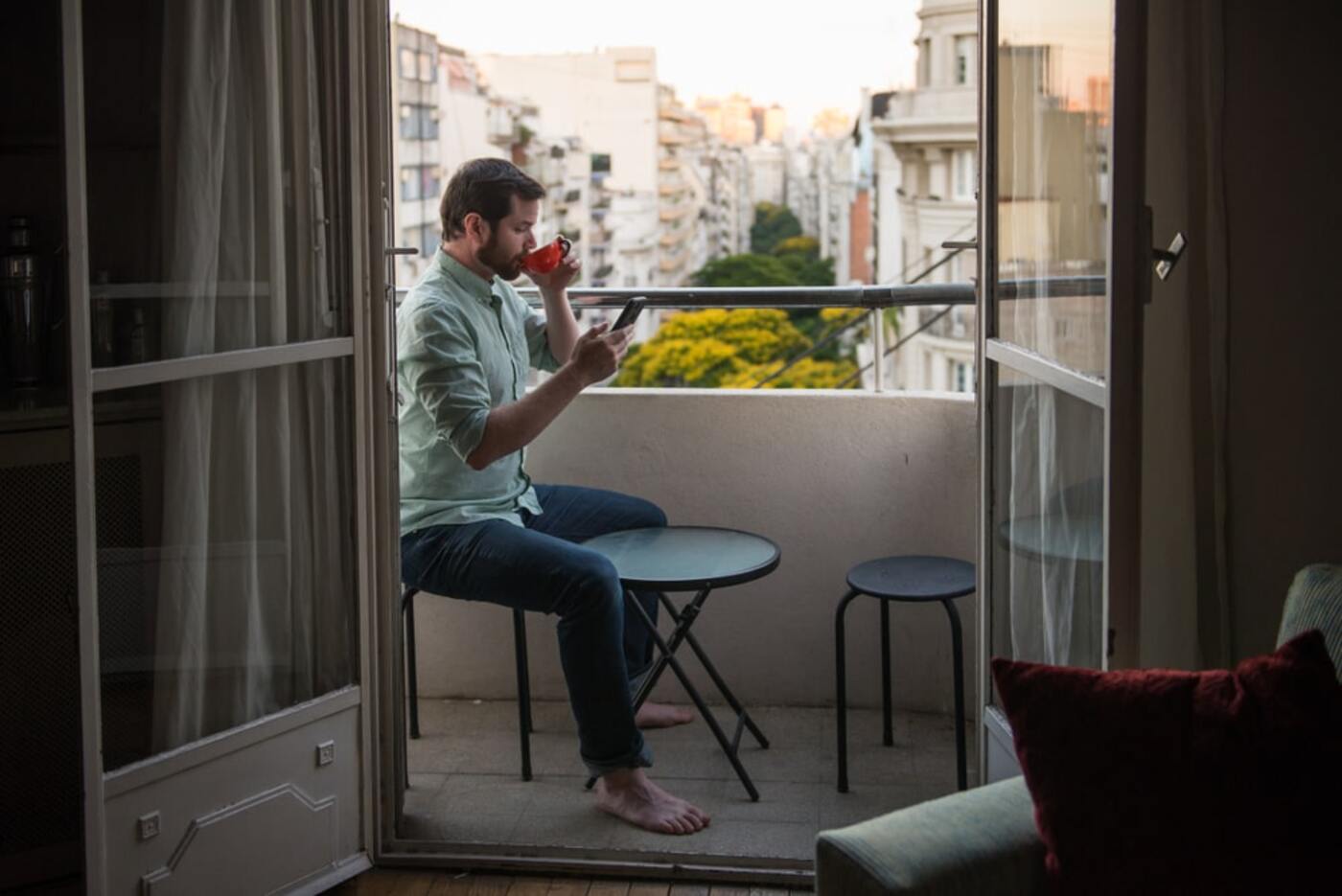
Staying connected is easy in Singapore thanks to its advanced telecom infrastructure and widespread internet access. Major telecom operators such as Singtel, StarHub, and M1 offer comprehensive mobile and broadband services, ensuring that expats can stay connected with their loved ones both locally and internationally. In addition to telecommunications, Singapore boasts a vibrant media landscape with a diverse array of newspapers, television channels, and online platforms catering to expatriate audiences.
Healthcare in Singapore
Access to quality healthcare is a priority for expats, and Singapore delivers on this front. With its world-class medical facilities, highly trained healthcare professionals, and cutting-edge technology, Singapore offers expatriates access to some of the best healthcare services in the world.
Whether you’re seeking routine medical care, specialized treatment, or emergency services, you can trust that you’ll receive top-notch care in Singapore. Expatriates can choose between public hospitals, private clinics, and international medical centers, depending on their healthcare needs and preferences.
Moving from the USA & UK

People from the USA and UK comprise a significant portion of the expat community in Singapore. Their experiences provide valuable insights for others considering moving to Singapore from these countries. Whether you’re relocating for work, education, or personal reasons, expatriates from the USA and UK can expect to find a welcoming and supportive expat community in Singapore. From networking events and social gatherings to online forums and expat clubs, there are plenty of opportunities to connect with fellow expatriates and make new friends in Singapore.
Meeting other expats in Singapore
Expats can connect with like-minded individuals through various avenues such as clubs, networking events, and online forums. These communities provide support and camaraderie for those living in Singapore. Whether you’re seeking professional connections, social activities, or advice on expat life, you’ll find a wealth of resources and opportunities to connect with fellow expatriates in Singapore. From business networking events and sports clubs to cultural organizations and volunteer groups, there’s something for everyone in Singapore’s vibrant expat community.
Getting around Singapore: Transportation options
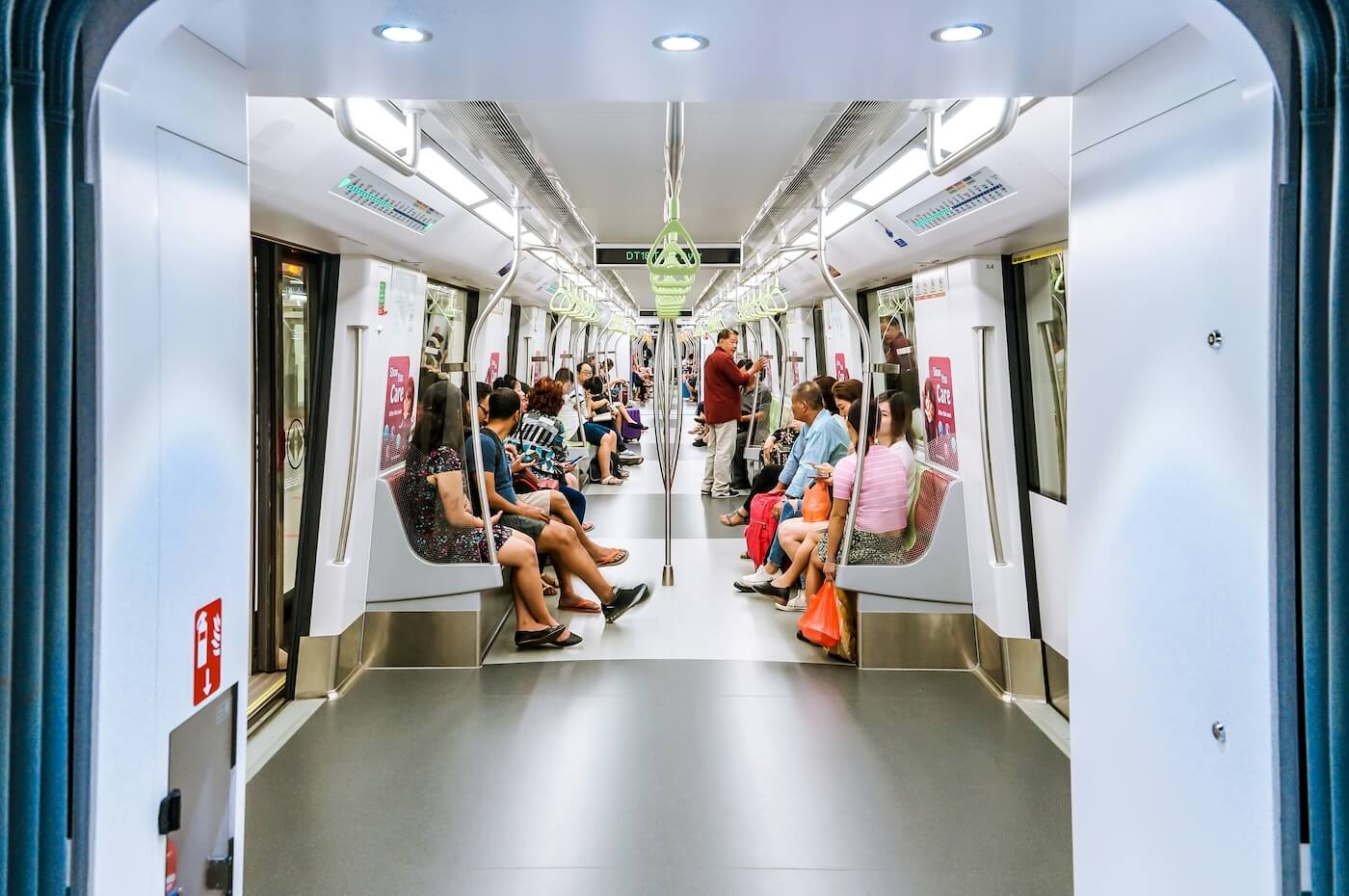
Navigating Singapore is convenient because of its efficient public transportation system. Expats can rely on the MRT (Mass Rapid Transit) and bus network to travel around the island quickly and affordably. With an extensive network of train lines and bus routes covering virtually every corner of Singapore, getting from point A to point B has never been easier. In addition to public transportation, expats can also explore alternative modes of transport such as taxis, ride-hailing services like Grab and Gojek, and cycling.
Do you need a car in Singapore?
This is one of the most-asked questions by people looking at our expat guide to Singapore. While owning a car offers convenience, it’s not a necessity for living in Singapore. Expats can rely on public transportation and alternative options such as ride-hailing services for their commuting needs. With Singapore’s well-developed public transportation system and compact size, getting around the city is quick, convenient, and affordable.
From buses and trains to taxis and bicycles, expatriates have a variety of transportation options to choose from in Singapore. Additionally, Singapore’s efficient infrastructure and pedestrian-friendly streets make walking a viable mode of transportation for short distances, further reducing the need for car ownership in the city-state.
Buying a car in Singapore can be significantly more expensive compared to many other countries due to various factors such as taxes, import duties, and certificate of entitlement (COE) fees. Here’s a breakdown of the costs associated with buying a car in Singapore:
- Certificate of Entitlement (COE): The COE is a quota license that allows the holder to own and use a vehicle in Singapore for a period of 10 years. It’s obtained through a bidding process, and the cost varies depending on the prevailing demand and supply conditions. As of recent years, COE prices have been high, often exceeding the actual cost of the vehicle itself.
- Vehicle Purchase Price: The actual cost of the vehicle varies depending on factors such as make, model, specifications, and dealership. Import duties and taxes imposed on vehicles also contribute to the overall purchase price.
- Additional Fees and Charges: Buyers may incur additional fees and charges such as registration fees, road tax, insurance premiums, and administrative fees. These costs can vary depending on the vehicle’s specifications and the insurance provider.
- Depreciation: Cars in Singapore depreciate rapidly due to the limited lifespan of the COE and high ownership costs. The depreciation rate can vary depending on factors such as vehicle brand, mileage, and condition.
- Maintenance and Operating Costs: Owners need to budget for ongoing maintenance, repairs, fuel, parking fees, and other operating expenses associated with vehicle ownership in Singapore.
Language in Singapore

English is widely spoken in Singapore, making it easy for expatriates to communicate and integrate into society. While Mandarin, Malay, and Tamil are also official languages, proficiency in English is sufficient for living in Singapore. Expatriates who are fluent in English will have no trouble navigating daily life in Singapore, from conducting business meetings and shopping at local markets to socializing with friends and colleagues. However, expatriates who are interested in learning other languages such as Mandarin or Malay will find plenty of resources and opportunities to do so in Singapore, further enriching their cultural experience in the city-state.
Online Resources for Expats in Singapore
Expats can access a wealth of online resources, including expat forums, community websites, and government portals, to gather information and connect with fellow expatriates living in Singapore. Whether you’re looking for housing listings, job opportunities, social events, or practical advice on expat life, you’ll find everything you need online to make the most of your expat experience in Singapore.
Here is a list of websites that provide information for expats in Singapore:
- ExpatChoice.Asia a comprehensive online platform offering resources and information for expatriates in Singapore. It covers a wide range of topics, including housing, healthcare, education, employment, lifestyle, and relocation services.
- Expat Living Singapore:Expat Living Singapore is a popular expatriate magazine and website that provides articles, guides, and recommendations on living in Singapore. It covers topics such as housing, education, healthcare, dining, entertainment, and events.
- Angloinfo Singapore: Angloinfo Singapore is an online community and resource hub for English-speaking expatriates living in Singapore. It offers practical information, advice, and forums on various aspects of expat life, including relocation, legal matters, healthcare, and education
- Singapore Expats: Singapore Expats is a leading online portal catering to expatriates living and working in Singapore. It features classifieds, forums, guides, and articles on topics such as housing, employment, schools, healthcare, and lifestyle.
- InterNations Singapore: InterNations Singapore: InterNations is a global expatriate community that facilitates networking and socializing among expatriates worldwide. The InterNations Singapore chapter organizes events, forums, and groups for expats to connect and share experiences
- The Finder Singapore: The Finder Singapore is a lifestyle magazine and website that caters to expatriates and residents in Singapore. It offers articles, tips, and guides on various aspects of life in Singapore, including housing, shopping, dining, travel, and family activities.
- Singapore Expatriate Advice: Singapore Expatriate Advice is a website offering practical advice, tips, and resources for expatriates living in Singapore. It covers topics such as immigration, housing, healthcare, education, employment, and lifestyle.
- Singapore Expat Wives: Singapore Expat Wives is a community and resource platform for expatriate women living in Singapore. It provides support, advice, and information on topics such as socializing, networking, parenting, health, and wellness.
Our “Moving to Singapore” checklist
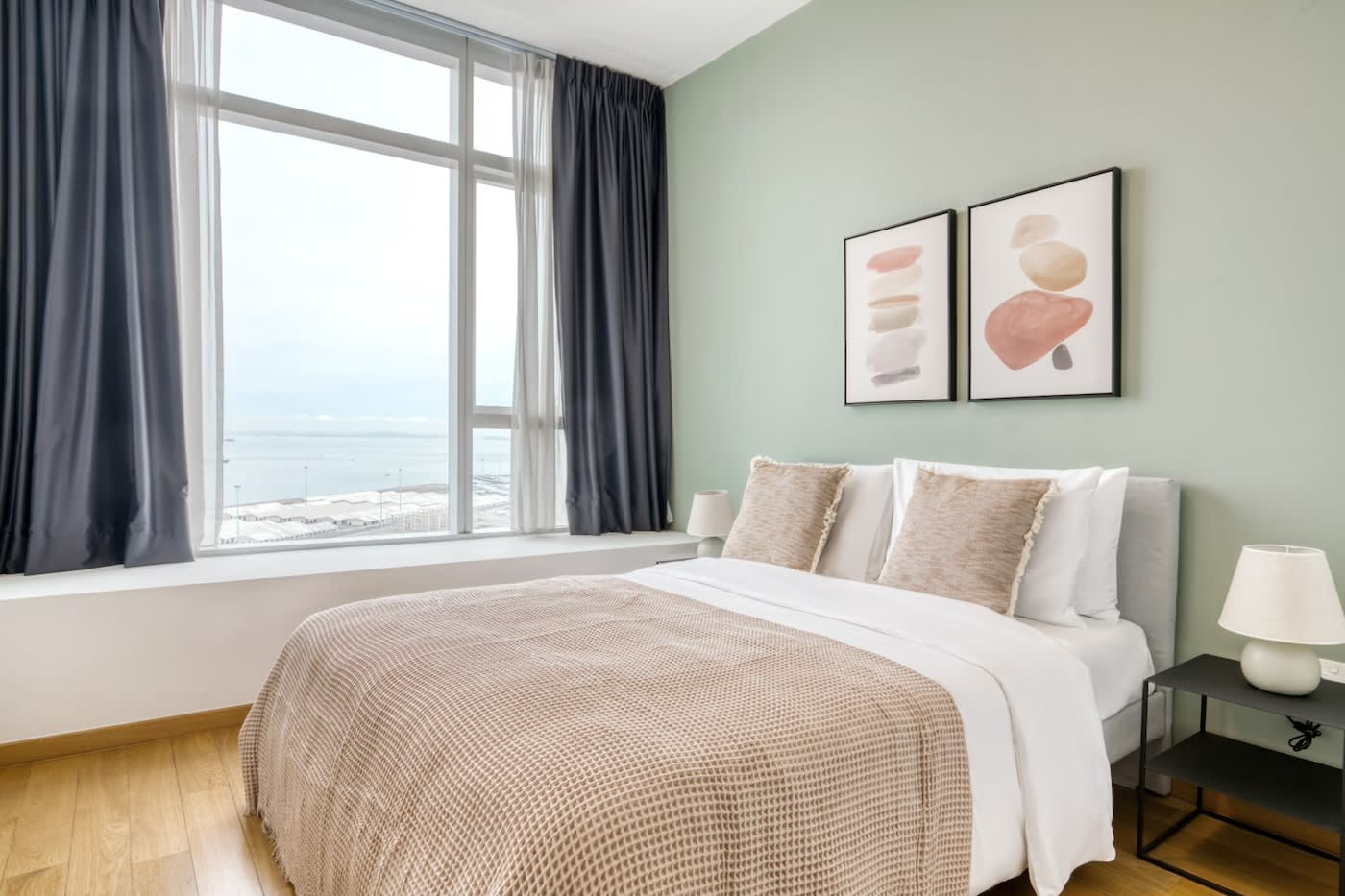
As you embark on your journey of moving to Singapore, armed with this comprehensive guide, you’ll be well-prepared to navigate the challenges and embrace the opportunities that await in this dynamic city-state. Whether you’re relocating for work, education, or personal reasons, Singapore offers a welcoming and accommodating environment for expatriates from around the world. From its world-class healthcare facilities and efficient public transportation system to its diverse culinary scene and vibrant expat community, Singapore truly has something for everyone.
Below is our proposed checklist of things to consider and tick off before moving to Singapore:
- Visa and Immigration:
- Apply for the appropriate visa or pass (e.g., Employment Pass, Dependent Pass, Long-Term Visit Pass) based on your circumstances.
- Ensure all necessary documents are in order, including passport, employment contract, and relevant qualifications.
- Accommodation:
- Research and secure housing arrangements before arrival.
- Consider factors such as location, budget, amenities, and lease terms.
- Engage the services of a real estate agent or utilize online platforms to find suitable accommodation options.
- Finances:
- Open a bank account in Singapore to facilitate financial transactions.
- Transfer funds or set up international banking arrangements for seamless money management.
- Familiarize yourself with Singapore’s currency and banking regulations.
- Healthcare:
- Arrange for health insurance coverage to meet your medical needs in Singapore.
- Research healthcare providers and facilities in your area of residence.
- Ensure any necessary vaccinations or medical records are up to date.
- Education:
- Enroll children in school or childcare facilities if applicable.
- Research and apply to suitable educational institutions, including local schools or international schools.
- Obtain necessary documentation for school admissions.
- Utilities and Services:
- Set up utilities such as electricity, water, and internet services for your new home.
- Arrange for postal services and redirection of mail if necessary.
- Register for essential services like mobile phone plans and cable television.
- Transportation:
- Familiarize yourself with Singapore’s public transportation system, including MRT (Mass Rapid Transit) and bus routes.
- Consider purchasing an EZ-Link card for convenient travel on public transport.
- Explore alternative transportation options such as cycling or ride-hailing services.
- Employment and Career:
- Secure employment or have a job offer lined up before arrival.
- Understand your employment terms and conditions, including salary, benefits, and working hours.
- Research career opportunities and networking events in your industry.
- Legal and Administrative Matters:
- Familiarize yourself with Singapore’s laws and regulations, including employment rights and responsibilities.
- Obtain necessary permits or licenses for specific activities or businesses if applicable.
- Register with relevant government agencies for taxation and residency purposes.
- Cultural Adaptation:
- Learn about Singapore’s culture, customs, and social norms.
- Embrace diversity and respect local traditions and practices.
- Connect with the expatriate community and participate in cultural exchange activities.
- Personal Checklist:
- Pack essential belongings and documents for the move.
- Notify relevant parties of your change of address, including banks, employers, and service providers.
- Arrange for temporary accommodation upon arrival if needed.
- Emergency Preparedness:
- Familiarize yourself with emergency contacts and procedures in Singapore.
- Keep important documents and emergency supplies readily accessible.
- Stay informed about local safety and security advisories.





